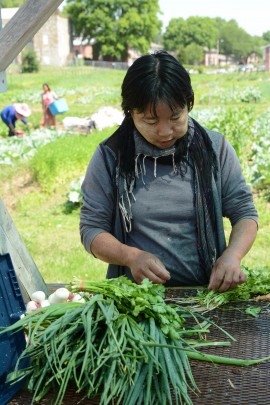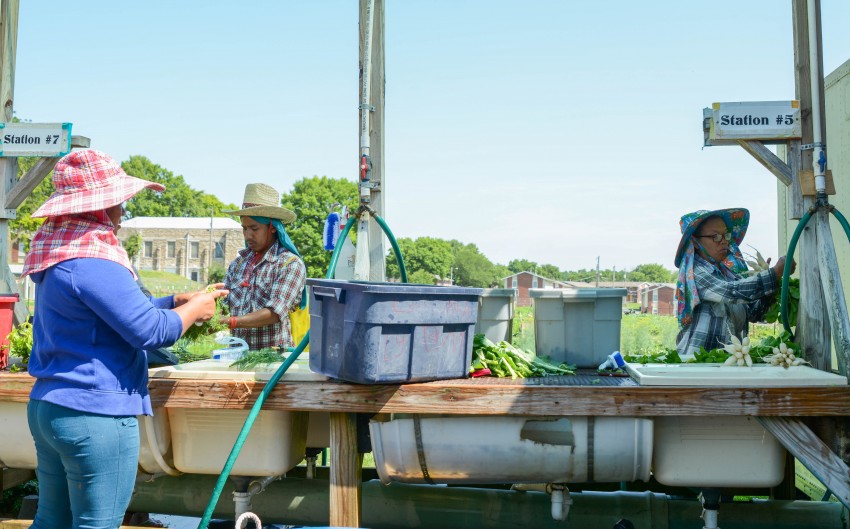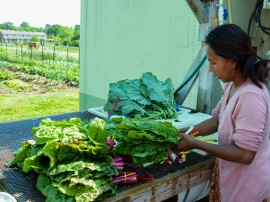By Kate Hagans on February 6, 2018
Cultivate Kansas City
Bringing nutritious food to Kansas City
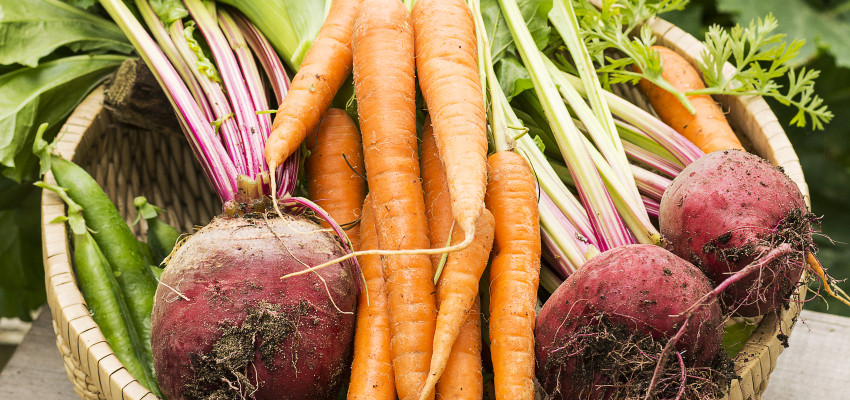
Food is a source of nourishment, but more than that, it’s a way to bring families and friends together through a cultural experience. Cultivate Kansas City, a non-profit organization, is helping everyone in its community have access to nutritious food that speaks to them. Since 2005, Cultivate KC has grown in staff and budget, allowing them to create a food movement in which the community can take pride.
“We are truly a non-profit that works for the good of the community,” Katherine Kelly, Executive Director and Co- Founder at Cultivate KC, says.
PLANTING THE SEED
Cultivate KC has an area of focus for each one of its three growing locations. Juniper Gardens Training Farm teaches refugees to become urban farmers while immersing themselves in the community. The Food Forest provides lessons in how plants can work in harmony to support each other. Gibbs Road Farm is a model and demonstration farm with a community greenhouse.
Juniper Gardens Training Farm is home to the New Roots for Refugees program. This program is conducted in partnership with Catholic Charities of Northeast Kansas.
The New Roots program hosts 16 refugee farmers each year. In 2017, the class of farmers enrolled were from the countries of Myanmar (formerly Burma), Bhutan and The Republic of Congo. Through this four-year training program, farmers have a chance to build their strengths while growing food.
“Our non-profit, locally grown partnership program with Catholic Charities provides the refugee farmers with an entrepreneurial opportunity to promote urban agriculture while still preserving the earth and their community in a sustainable way,” Kelly says.
When these farmers take part in the program, they must learn everything from the ground up. Obstacles include language barriers, growing food in the Kansas climate and even learning how to operate agricultural technology. As the farmers attend classes, work with the farm managers on a day-to-day basis and sell their produce at farmers markets, they begin to overcome these challenges one step at a time.
“While the farmers farm and are learning the trade, they are also starting a business,” Kelly says.
Community Supported Agriculture (CSA) programs help encourage business at farmers markets. By using a direct farmer to-consumer marketing method, the CSA program pairs members who pre-pay for an entire season of produce with individual farmers. Members can then choose the produce they want where their paired farmer is selling each week.
“All of our farmers go to two farmers markets to sell their produce, and consumers can arrange to have their CSA [produce] picked up at the markets,” Kelly says.
The refugee farmers have seen an increase in the number of people coming to farmers markets. This is another example of the organization’s goals — connecting consumers to farmers.
Kelly believes nutrition education can evolve from growing and selling food. Not only can these farmers sell at farmers markets, but they also gain interest from restaurants.
“This past year, we had 21 restaurants purchase produce from us,” Kelly says. “We sold about $30,000 worth of produce.”
PROVIDING HEALTHY OPTIONS
Double Up Food Bucks is one of three Cultivate KC nutrition incentive programs focused on increasing access to healthy food for low-income individuals and families. It began at five farmers markets in Detroit in 2009 and is now available through local partners at farmers markets and grocery stores in more than 20 states, including Kansas.
The United States Department of Agriculture (USDA) Food Insecurity Nutrition Incentive program allows regional organizations to collaborate with area families and farmers. Double Up Food Bucks makes it easier for low-income families to eat fresh fruits and vegetables while supporting family farmers and growing local economies.
Families involved in the Supplemental Nutrition Assistance Program (SNAP) can double their dollars for fresh fruits and
vegetables at participating farmers markets.
Two other programs are managed by the organization. They include the Kansas Senior Farmers Market Nutrition Program, which offers discount coupons to senior citizens at participating farmers markets, and the El Centro nutrition incentives
program, which provides coupons for Spanish-speaking residents who take a short nutrition lesson at farmers markets.
“Our nutrition incentives programs have matched or discounted more than $160,000 in assistance for low-income families in 2017,” Kelly says. “In all, more than 7,200 families and individuals were positively impacted.”
To put it in perspective, that’s 700,000 servings of fresh fruits and vegetables for those in need in a one-year period.
PREPARING FOR THE FUTURE
Cultivate KC has developed a three-year strategic plan to continue to increase local food awareness and introduce urban agriculture to local consumers.
“This past year, the organization has expanded and staff has been restructured to prepare for our future growth and direction,” Kelly says. “As we move forward, we will continue to assess our impact to make sure we are reaching our goals and focusing our efforts on areas that truly impact local food and local farmers.
“We’re preparing for our next farm, which will be located at Plexpod Westport Commons. It will be our first farm on the Missouri side of the metro.”
Thanks to programs like Cultivate KC, urban residents have access to the resources and knowledge necessary for growing and eating wholesome food. 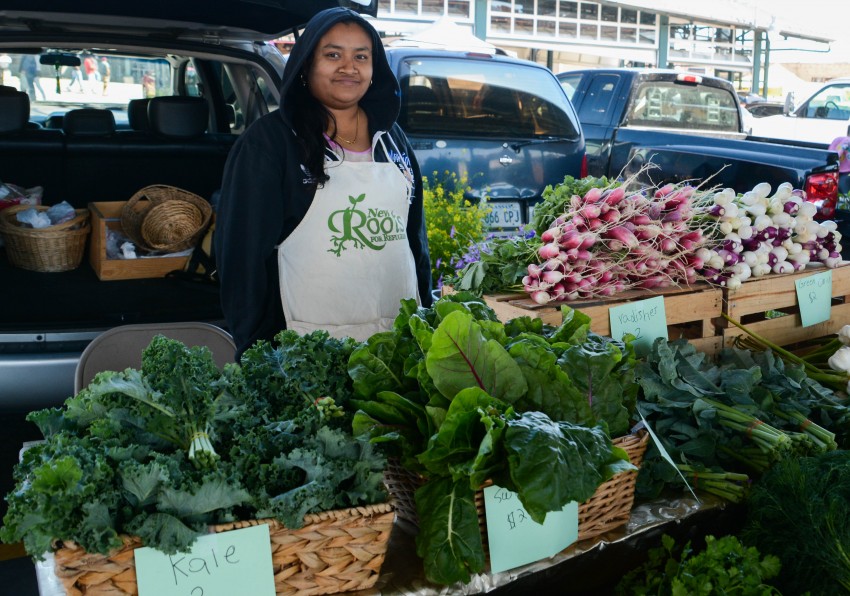
Cultivate KC is always in need of volunteers, gifts of support and involvement. For more information, visit www.cultivatekc.org or email info@cultivatekc.org.

